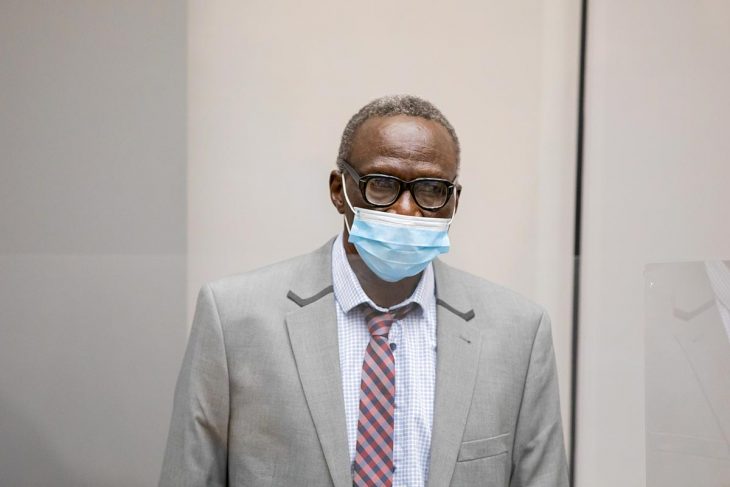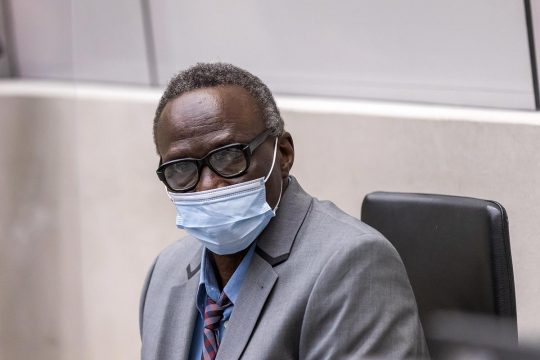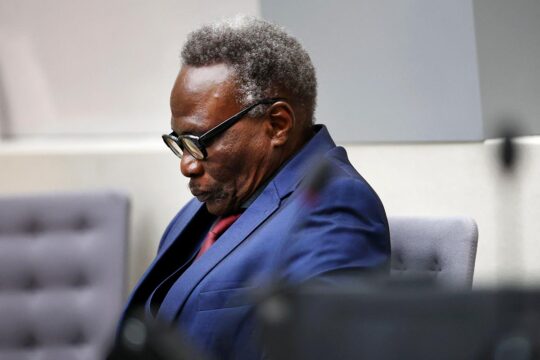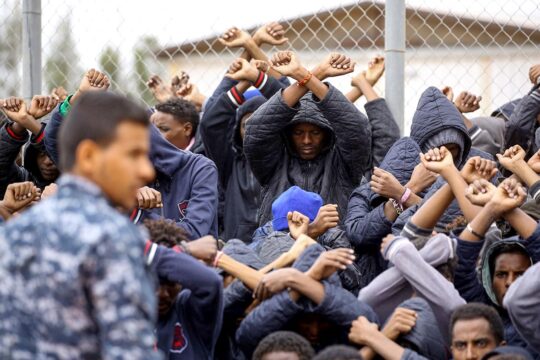High ranking military officers will be watching closely, as will displaced people and refugees from Darfur. This Tuesday they’ll be following with interest, on their cell phones, computers or transistor radios, the first hearing in this trial before the International Criminal Court (ICC) in The Hague, Netherlands. Top Sudanese military officers will be fearing that the defendant speaks out during his trial, while the victims and refugees hope that he will do so. The former will certainly want vindication in their refusal to cooperate with the ICC, while the latter will be pleased to see that justice is finally being done.
There is another little group of Sudanese citizens who will be paying attention too: the three other people wanted by the ICC, arrested in Khartoum after the fall of Omar al-Bashir almost three years ago to the day and still held in Kober prison, north of Khartoum on the eastern bank of the Blue Nile. They are former president Al-Bashir himself, former Humanitarian Affairs Minister and governor of South Kordofan Ahmed Haroun, and former minister of defence Abdelrahim Hussein.
Crimes in Darfur in 2003-2004
The charges against Ali Kushayb date back almost two decades. But his court appearance is an event, since it is the first time a militia leader has been tried for mass crimes committed in Darfur, and he is the only one in the hands of international justice. He arrived in The Hague in June 2020 after voluntarily surrendering to authorities in the Central African Republic, the country to which he had fled. “He was afraid of being killed by his ex-colleagues from the intelligence of the former regime, and especially by the NISS,” says a Sudanese activist close to the case who prefers to remain anonymous for security reasons. “He thought he would be safer in the hands of the ICC than free in the Central African Republic! He knows all the secrets of the top officials of the former regime in the crimes committed in Darfur - who recruited the militia, who paid them, and who gave the orders, especially among the police and the PDF (Popular Defence Force) officers.” This paramilitary force, the PDF, was used by Khartoum in South Kordofan and Darfur to manage the notorious Janjaweed (literally, "demons on horseback") tribal militiamen.
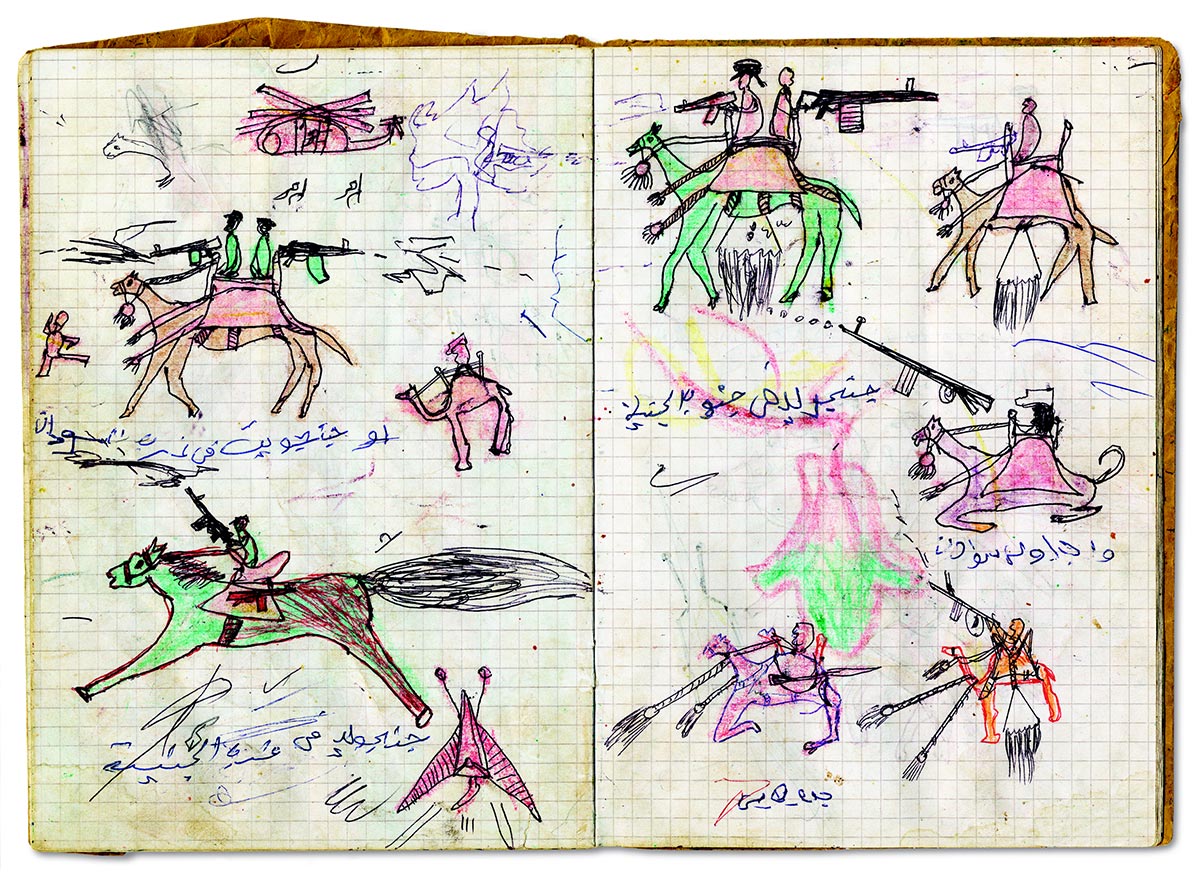
Ali Kushayb is accused of having been a senior member of the PDF, the "colonel of colonels," and as such of having led thousands of Janjaweed who set fire to the Wadi Salih area of West Darfur state at the beginning of what has been called the "Darfur war”. His official function remains unclear. According to the ICC prosecutor, Ali Kushayb cooperated with senior Sudanese government officials, including a minister of state in the Interior Ministry, Ahmad Muhammad Harun. He allegedly received "arms and money from Harun and distributed them to the Janjaweed militia. According to the Sudanese activist close to the case, Ali Kushayb "was a member of the Central Reserve Forces, a part of the Interior Ministry, from which he retired before 2000, and then became during the conflict a member of the Popular Defence Forces and a leader of the Janjaweed”.
The arrest warrant issued against him in February 2007 contained 51 charges, which were consolidated into 31 counts of war crimes and crimes against humanity committed between August 2003 and March 2004 in and around the towns of Kodoom, Bindisi, Mukjar and Deleig. It is a long litany of alleged crimes: intentional attack on a civilian population, murder and attempted murder, looting, destruction of property and livestock, inhumane acts, outrages upon personal dignity, rape, torture, forced transfer of population, and cruel treatment.
Behind the legal qualifications are hundreds of testimonies telling of devastated, shattered lives and suffering that still plague the martyred Darfur region of western Sudan. Several dozen witnesses are to be heard by the Court. During one of their visits to Darfur, ICC investigators heard testimony from Yagoub Abdallah, a resident of the Kalma camp for displaced persons, about 15 kilometres from South Darfur’s capital Nyala. He is the president of the General Coordination of Displaced Persons and Refugees of Darfur, an organization fighting for their rights, and is in touch with international agencies and NGOs. Yagoub Abdallah was born in the village of Beregi, a few kilometres north of the town of Deleig in the Wadi Salih region. He belongs to the Fur ethnic group, the majority in this area.
Until 2003, he led an uneventful life as a farmer. “I cultivated about 15 feddan [6.3 hectares], growing sugar cane and beans," says Abdallah. “I was the president of the local youth association.” He is not a member of the Sudan Liberation Army (SLA), the main rebel group in Darfur, which is fighting the central government and managed to gain a foothold in several surrounding villages in the first half of 2003. In August 2003, after the SLA attacked police stations, senior officials visited from Khartoum. According to a testimony collected in 2004 by Human Rights Watch, Interior Minister Ahmed Haroun then gave a speech urging the Janjaweed and the army to "kill the Fur". The first attacks in and around the villages of Bindisi and Mukjar began in August 2003. Ali Kushayb's leadership role even then is described by victims.
“Ali Kushayb killed three people with his own hands”
Abdallah was a witness and victim of an attack by Khartoum-linked forces in March 2004. Some time before, he had to flee his village, which was attacked by government forces, and take refuge in the nearest town, Deleig. “It was a Friday morning, March 5, 2004. I was at the mosque in Deleig, I saw Ali Kushayb gathering men arrested in their houses, in the school, in public places, east of the big market where there is the school and a police station," recalls Abdallah. “There were people from villages to the east and south of Deleig, 125 men in all. Ali Kushayb killed three of them with his own hands. One of them, Adam Genef, was the agricultural inspector of the village of Arwalah. Ali Kushayb killed him himself, with a butcher's knife. The others were taken away. We received confirmation the next day that they had all been executed. Among them were the mayors of Tonoko, Forgo and Gaba.”
According to a January 2005 report by the UN Commission of Inquiry, the roundup targeted community leaders. Abdallah, his family and other villagers fled from the massacres. The massacres forced the inhabitants to abandon their land and villages, which were then taken over by Arab tribes. Finally, the displaced arrived in Kalma camp, set up in February 2004. They have not left the camp for 15 years, as it is too dangerous.
In The Hague, Ali Abd al-Rahman's defence will plead mistaken identity. They will say it is not certain that an Ali Kushayb ever existed, and if he did, he is not Ali Abd al-Rahman, who has nothing to do with it. That is at least what the defence brief says. "This is not tenable," says the Sudanese activist who assisted ICC investigators in Darfur. “Dozens of people have recognized him. Whatever his name is, he is the one who is going to be judged, who committed all these crimes, who slit throats, burned, killed, beat people. He did it in broad daylight in front of hundreds of people.” Moreover, he continues, Ali Abd al-Rahman, alias Ali Kushayb, was well known before the war. “He had a house in Garsila and my brother often visited him, there were no problems between us," says Abdallah. “He had a veterinary products store. Every week, he came to the market in Deleig to sell them, sometimes with a cart, sometimes by car. He worked like that for several years. Later, he joined the PDF, he took the lead of the Janjaweed, and there he became one who kills."
The trial is taking place at a time when Darfur is once again witnessing numerous acts of violence. These are fomented, according to many witnesses, by the Janjaweed, including members of the Rapid Support Force (RSF), a paramilitary corps led by Mohamed Hamdan Dagalo… the second in command of the ruling junta in Khartoum. Among the displaced, the satisfaction of seeing Ali Kushayb judged is diminished by the fear of reprisals.


